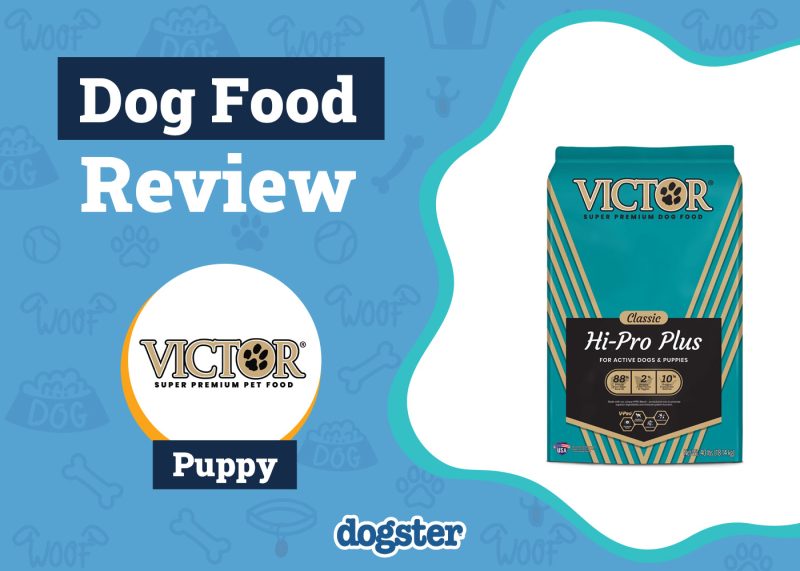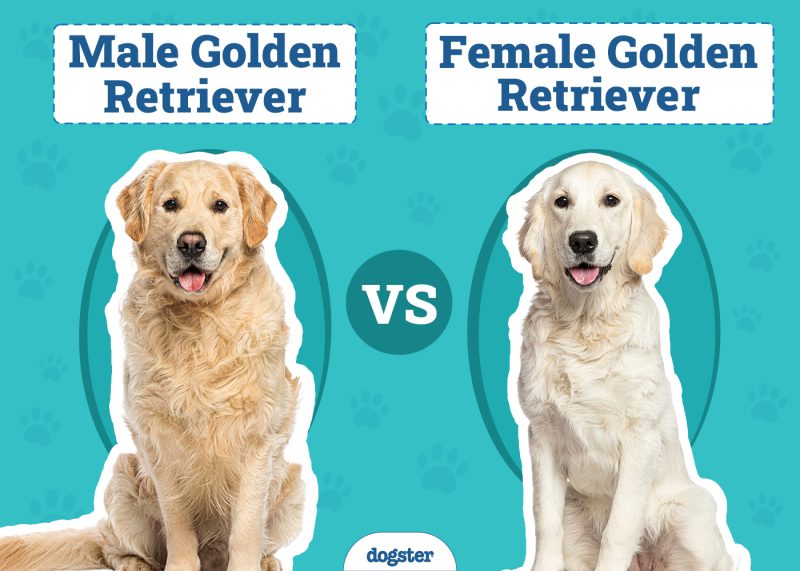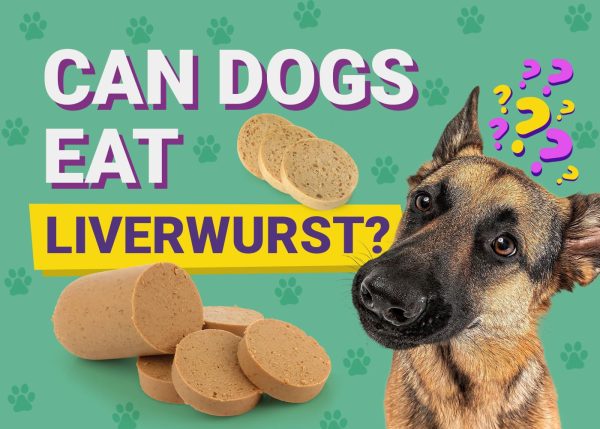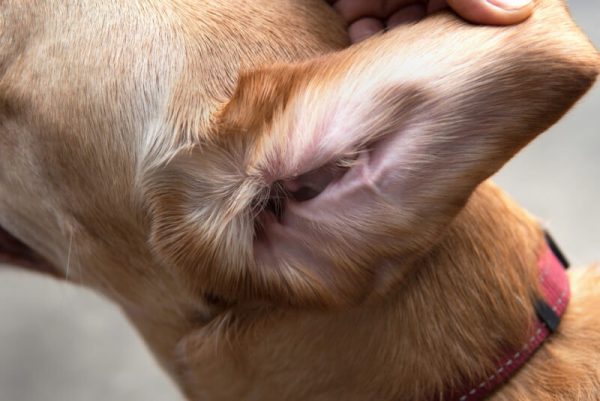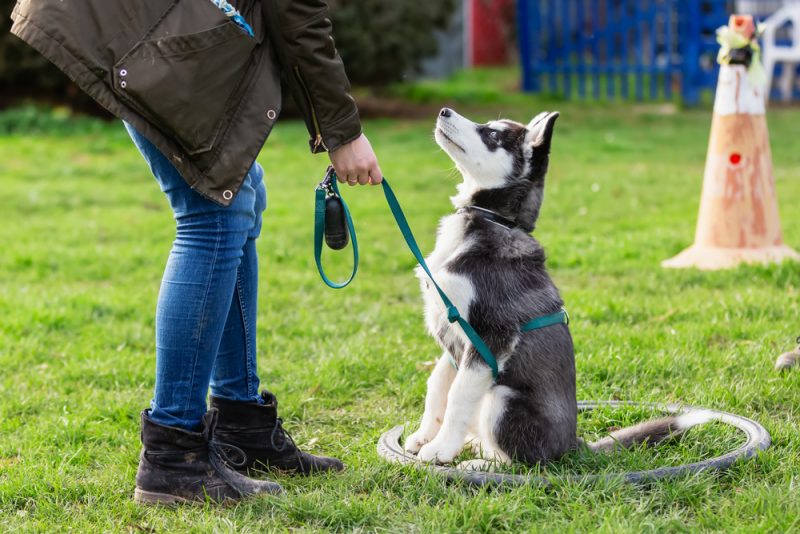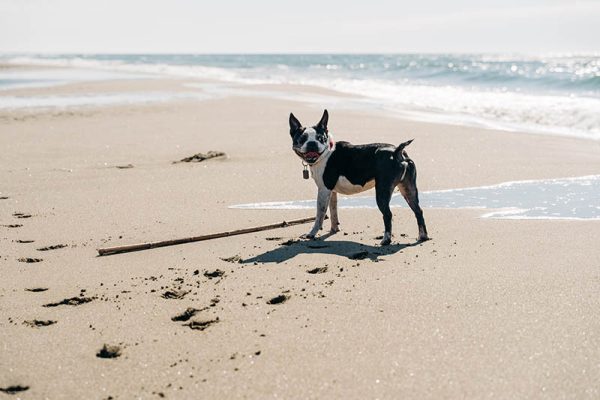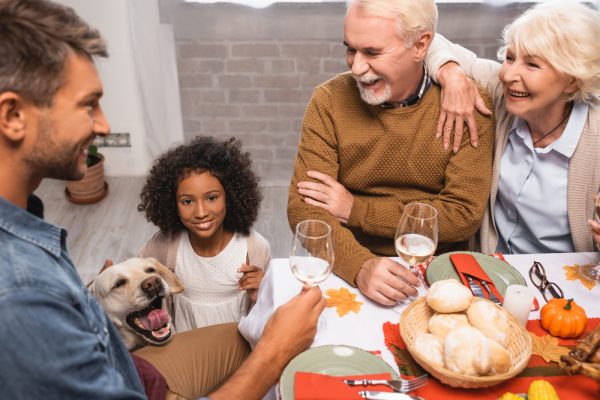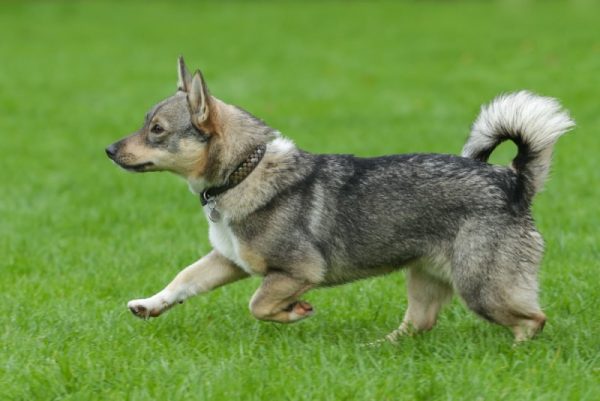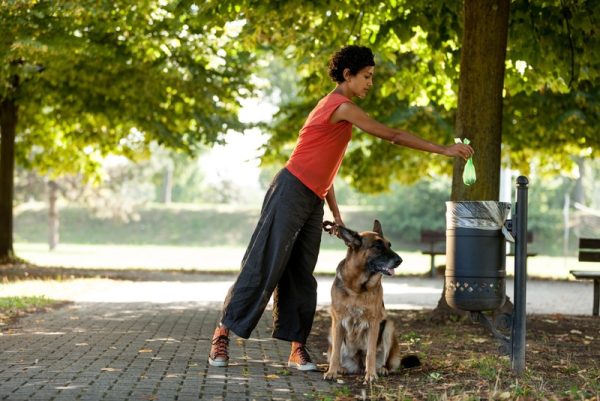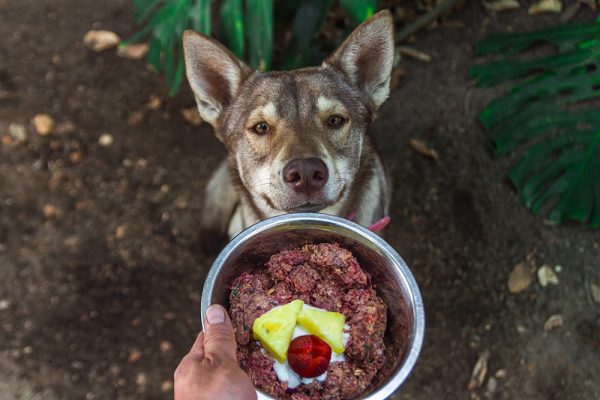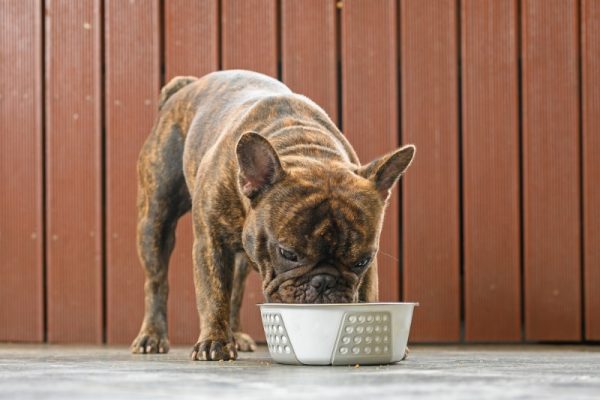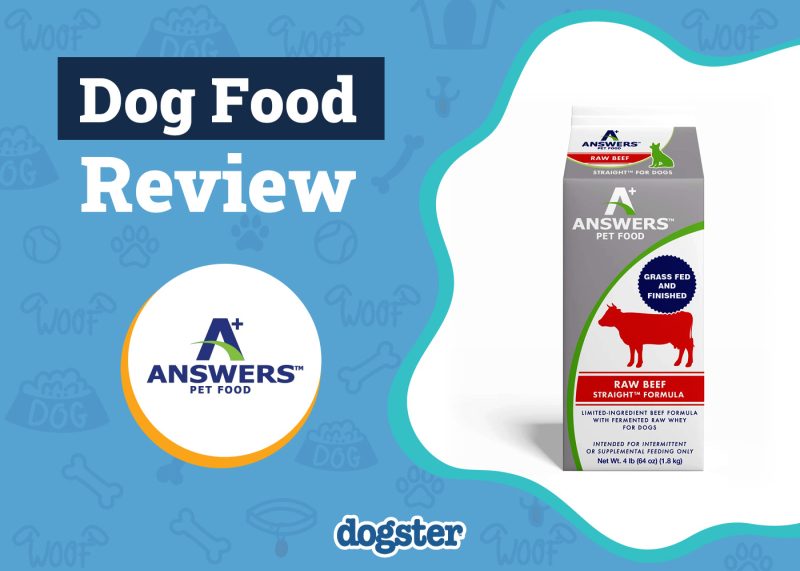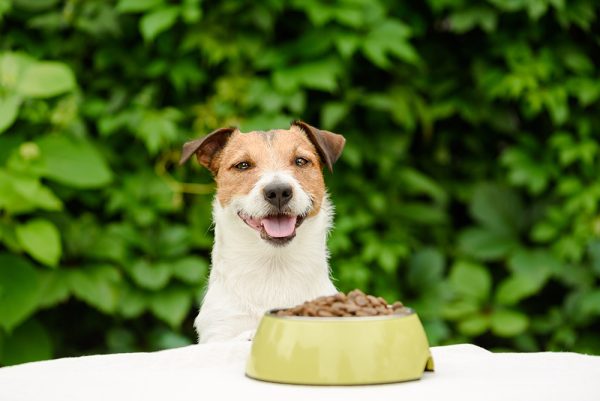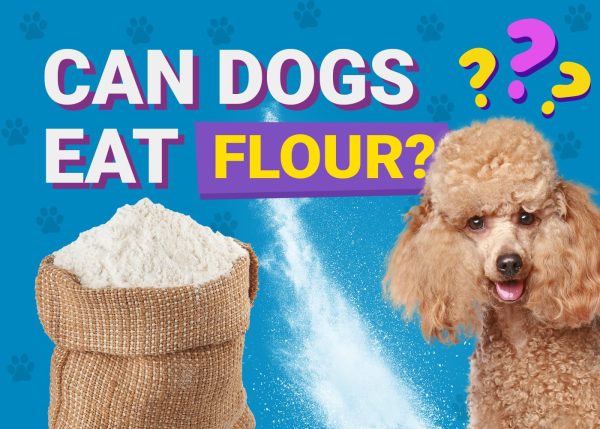In this article
View 2 More +Funyuns are delicious and easily accessible snacks that can be found anywhere and are enjoyed by those with a love for onion rings. Unlike your typical chip, Funyuns are made primarily of cornmeal but feature a list of other ingredients. It’s no secret that Funyuns are far from being considered a healthy snack for humans, but are they safe for dogs to eat?
The fact of the matter is, you should keep your Funyuns secured in your pantry and well out of your dog’s reach. Not only are they incredibly unhealthy for your pup, but they also contain some toxic ingredients that should be avoided entirely. Let’s take a look at why Funyuns are a no-go for our canine companions.

Why Dogs Should Never Eat Funyuns
Your dog should be getting their nutritional needs met through their regular diet and treats or snacks should never exceed 5 to 10 percent of their daily caloric intake. That being said, many human foods and ingredients are either very unhealthy or even toxic to our beloved pets and Funyuns check both boxes. Here’s why.
Fat
Fat is a necessary part of your dog’s overall diet, but there’s nothing healthy about the fats in Funyuns. Funyuns are fried at 300 degrees Fahrenheit using corn oil, canola oil, or sunflower oil, all of which may be pro-inflammatory in the human diet due to their high ratio of omega-6 fatty acids.
You have probably been advised to avoid unhealthy trans fats and saturated fats in your own diet, so feeding foods full of these to your pup is just unnecessary and unhealthy. The fats in Funyuns are not good additions to your dog’s diet and, in the least, could result in gastrointestinal upset or even obesity if fed regularly.
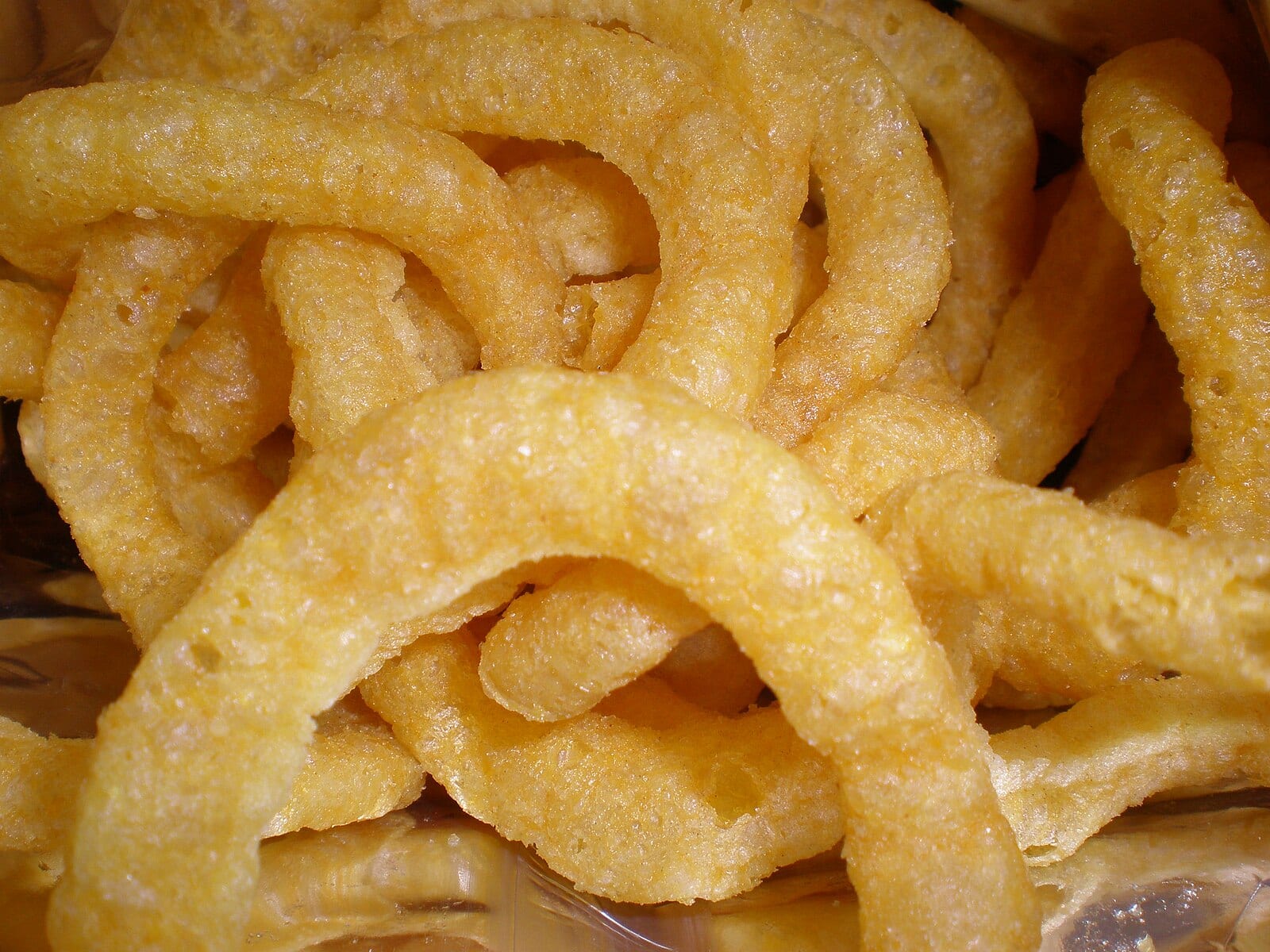
Salt
Funyuns are high in sodium and while salt is an essential part of your dog’s diet and is safe in moderation, there’s nothing moderate about the salt content in this snack food. Since your dog doesn’t need any additional salt in their diet, it’s best to avoid any salty foods as a snack or treat.
Keep in mind that too much salt can result in salt poisoning, which can be dangerous. Signs of salt poisoning include vomiting, nausea, diarrhea, excessive thirst, weakness, lethargy, and lack of coordination. Seizures, coma, and death are also possible in very severe cases.
Your dog getting into some Funyuns is unlikely to cause salt poisoning, but it’s always best to err on the side of caution.
Onion and Garlic Powder
Both onion and garlic are toxic to dogs, and since Funyuns are made specifically to taste like crispy, salty fried onions, it should come as no surprise that onion powder is an ingredient. In addition to that, garlic powder is also an ingredient in the mix. While it may not be as harmful in these smaller doses, these ingredients are still toxic and could lead to upset stomach, diarrhea, vomiting, and other signs of toxicity including haemolytic anemia, if consumed in large amounts.
MSG (Monosodium Glutamate)
MSG or monosodium glutamate may be declared safe by the FDA, but many people have side effects after eating foods containing MSG, and dogs can suffer from similar issues. Studies have shown that MSG can have serious negative effects on the nervous system, the liver and can induce obesity and diabetes in mice.
While it’s unlikely that your dog will develop acute toxicity to MSG by consuming food items, it may lead to damage if it is consumed regularly and over time. This is an ingredient that is best avoided altogether.

Feeding Your Dog a Healthy Diet
A nutritious, high-quality, and well-balanced diet is key to overall health for all of us, including our beloved doggies. It can be difficult navigating the world of pet nutrition, as there are a lot of questions still unanswered and a lot of conflicting information floating around out there. Since you love your dog like family and want to ensure they are getting the best of the best, here are some tips you can keep in mind.
Do Your Research
If you plan on feeding your dog a commercial diet, find a reputable company that offers high-quality dog food and puts your pup’s health and wellness as a top priority. Before committing to a specific food, compare brands, check recall history, and learn how to read dog food labels so that you can see how each food compares to the competitors. Look for the AAFCO statement of nutritional adequacy on the label.
Whether you feed commercial food or home-cooked meals, make sure your dog is getting a balance of all the necessary nutrients for their age, size, and activity level.
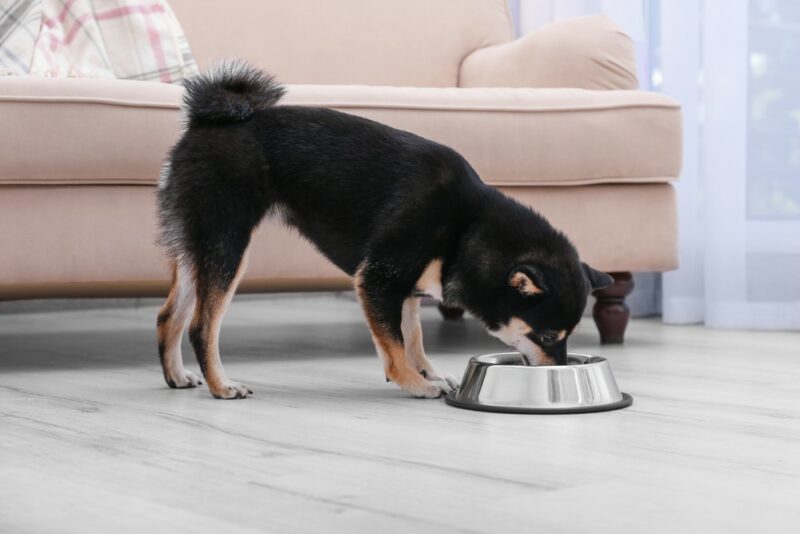
Avoid Unnecessary Ingredients
There’s quite a bit of controversy surrounding certain ingredients and formulations for commercial dog foods. It is often recommended to avoid certain ingredients like artificial colors, flavors, and preservatives. It’s always a good idea to discuss ingredients with your veterinarian if you have any questions or concerns.
Consider Your Dog’s Specific Needs
Not all dogs require special diets, but there may be some specific dietary requirements that you need to consider including your dog’s life stage, size, activity level, and overall health. Special diets and supplements may be necessary in some cases, especially for those with health conditions or specific nutritional needs. Specialty diets and supplements should only ever be offered if recommended or first approved by your veterinarian.
Talk to Your Veterinarian
Your veterinarian knows your dog’s health history and will be the best person to help you gain a better understanding of their dietary needs. You should always consult with your vet if you have any questions about what to feed your dog, before making any changes to your dog’s diet, or if you have concerns about something they have eaten.
If you need to speak with a vet but can't get to one, head over to PangoVet. It's our online service where you can talk to a vet online and get the advice you need for your pet — all at an affordable price!

Frequently Asked Questions
What Human Foods Can I Safely Feed My Dog?
Sharing food is an act of love and those puppy eyes have a way of speaking to your soul. It’s not recommended that you feed your dog human food for many reasons, but if you fall for their persuasion, some foods are perfectly safe, though they should only be fed moderate amounts.
- Chicken (plain)
- Salmon (plain)
- Turkey (plain)
- Beef (plain)
- Carrots
- Green beans
- Blueberries
- Peanut butter (dog safe, not containing xylitol)
- Pumpkin
- Watermelon (without rind and seeds)
- Apples (without rind and seeds)
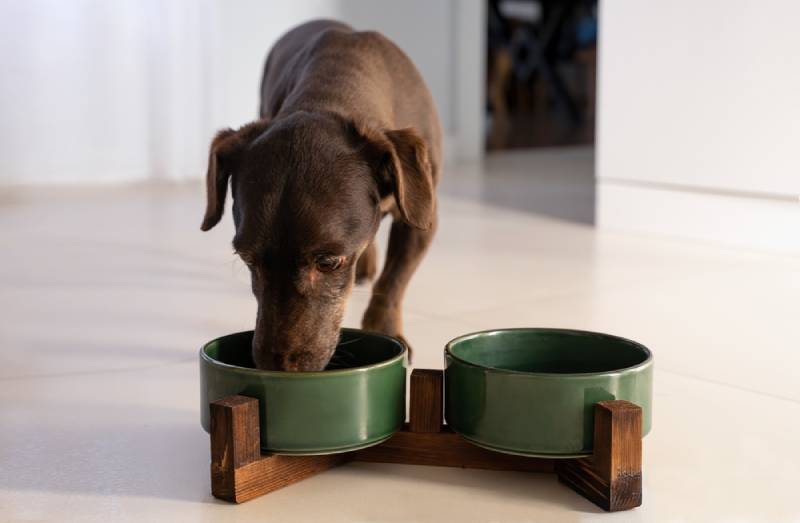
How Do I Prevent My Dog From Begging for My Food?
Offering your dog snacks and treats in the form of human food can set you up for that dreadful begging behavior. The best way to prevent your dog from begging is by avoiding human food altogether. This can be difficult, but is necessary to avoid this unwanted behavior.
If you insist on feeding human food, never offer your dog these food items while you are eating. If they are directly relating your meal with their treats, it’s only natural that they will expect your food and beg you for it if you fail to hand it over. Treat them away from the table and separately from your food.
Preventing your dog from begging will be much easier than retraining them not to beg, so keep that in mind before you are tempted to share your snacks with your four-legged pal, even though they can be very convincing.
What Happens If My Dog Eats Funyuns?
If someone offered your dog a single Funyun, chances are you may not notice a thing. This will depend on the individual, though. If your dog gets into a bag of Funyuns, it’s likely not to cause anything more than gastrointestinal disturbances including upset stomach, diarrhea, and sometimes vomiting. Because they do contain toxic garlic and onion powder, you should reach out to your veterinarian right away if your dog consumed large amounts of Funyuns and be mindful of any unusual clinical signs that could pop up.

In Conclusion
There should be no snacking on Funyuns for your dog. Not only are they fried in unhealthy fats, but they are high in sodium, contain toxic garlic and onion powder, and have MSG, which can be harmful. If you insist on feeding your dog human foods as a snack or treat, there are plenty of other healthy options to offer. Remember that feeding your dog a healthy, well-balanced diet is very important to their overall health, so never hesitate to reach out to your veterinarian if you have any questions.
Featured Image Credit: Funyuns in the Franklin Farm section of Oak Hill, Fairfax County, Virginia (Famartin, Wikimedia Commons CC SA 4.0 International)


